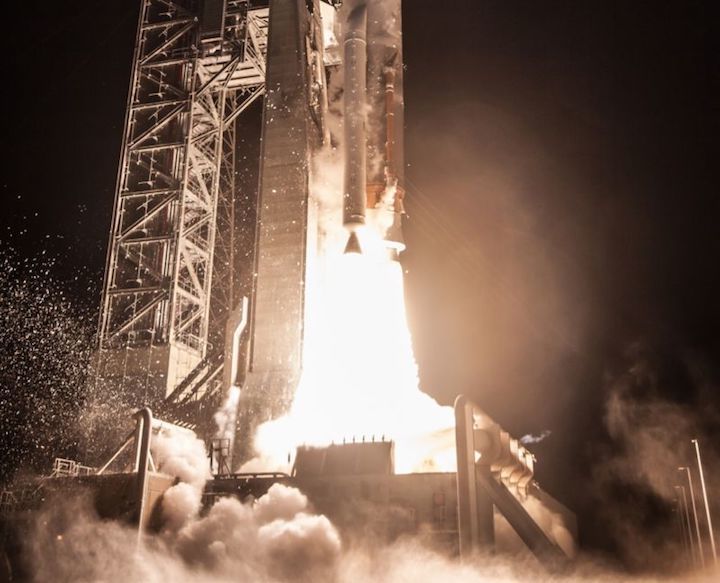19.01.2018
The RD-180 is 40 years old but remains one of the highest performing engines.

Ever since the Crimean crisis in 2014—precipitated by Russia's annexation of the Ukrainian-held peninsula—Congress has increased pressure on the US aerospace industry to end its use of Russian-made rocket engines. In particular, legislators want United Launch Alliance to stop using the RD-180 engine in its Atlas V launch vehicle. This booster, with a 100-percent mission success rate, launches many of America's national security payloads.
As United Launch Alliance plans to transition to US-made engines early next decade, and with other US rockets already flying or soon coming online, the Russian RD-180 manufacturers are looking to other markets. In doing so, they've found willing buyers in China, although this has come with some concerns.
Even though the rocket engine technology behind the RD-180 is 40 years old, it remains one of the highest performing engines in the world, with a near-perfect service record. With 860,000 pounds of thrust (about 3.8MN), the RD-180 also happens to be three times more powerful than any Chinese rocket engine.
The Financial Times has a new report on negotiations for the engine technology between Russia's NPO Energomash and the China Great Wall Industry Corporation. These discussions have been closely tracked by both Western officials and those in Russia.
For the United States and its allies, there is the concern that China's use of the engine technology will extend beyond peaceful uses in space. It is believed that China wants the powerful and efficient engines for a new generation of ballistic missiles that could target US aircraft carriers.
In Russia, too, there is wariness because China doesn't just want to buy engines as a customer, as United Launch Alliance did with the RD-180 for its rockets. Rather, they want to eventually build the engines themselves. “The Russians understand that what the Chinese ultimately want to do is put them out of the rocket engine business,” Rick Fisher, a missile technology expert at the International Assessment and Strategy Center in Washington, told the publication.
Quelle: arsTechnica
